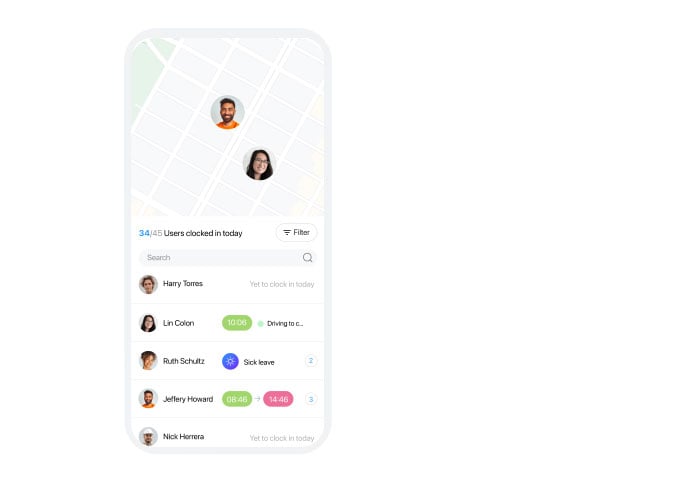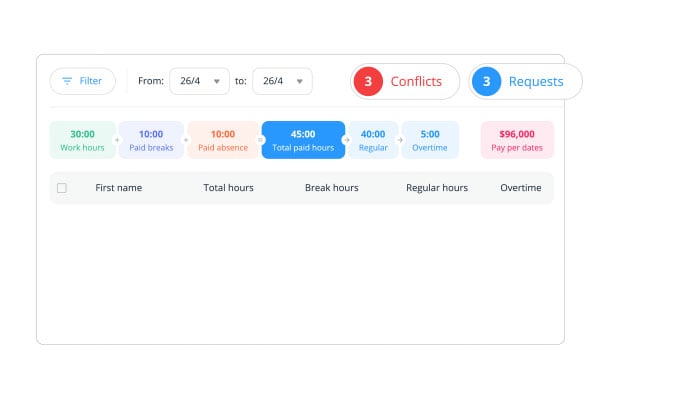During the lockdowns of 2020, workers in many fields worldwide switched to working from home. Once people realized that remote work could function as well as in-office, many companies made the switch permanent.
Others incorporated a hybrid work model, blending the two modes and allowing their workers to commute to the office only on certain days of the week.
Working from home has plenty of benefits, like no commute, flexible schedules, and taking calls in your pajamas. But when your office is only a few feet from your living room, chances are that you sometimes struggle to maintain a clear line between your home and professional life. Your time boundaries may become eroded to the extent that you find yourself on the clock non-stop.
As a remote or hybrid worker, you may not even notice this happening. But if you constantly think about work in your personal time, you likely have a poor work-life balance. It’s even possible that your work is causing you health issues, and if so, it’s crucially important to reset the boundaries between your personal and your professional life.

Benefits of a Balanced Work and Home Life
As a hybrid worker, you may have a sense that things are off-balance, but it takes some motivation to make the change. To give yourself the push to separate work life from home life, you should consider the positive effects you’ll enjoy.
Improved Mental and Physical Health
Your mental health can take a huge hit from a poorly balanced work and home life. You might notice trouble focusing or a feeling of being burned out, or even develop anxiety and depression. When you’re able to separate them, you’ll feel more in control of your workday and your domestic responsibilities—and more relaxed, happy, and focused.
Re-setting the boundaries can provide great benefits for your body as well as your mind. You’ll be able to get more sleep and exercise, improve your diet, and reduce tension by improving your work-life balance.
Getting More Done
Believe it or not, letting work cut into your personal time could actually hurt your productivity. Working longer hours can lead to burnout, which will cause you to get less done and make more mistakes. When you keep work life separate from home life, you’ll increase your productivity and efficiency.
Better Relationships
Your relationships with your family and friends will all benefit from your improved work-life balance. Having more personal time will allow you to spend more time with the people you care about. Your quality time with loved ones will also be more meaningful because you won’t constantly be thinking about work.
Streamline Your HR Processes And Boost Productivity With Connecteam’s All-In-One HRIS
How to Separate Work Life from Home Life
So how do you separate work and home and create clear boundaries between personal and professional time—and stick to them? Read on for some simple ways to improve your work-life balance.
-
Have a Designated Space for Work
-
Use Separate Accounts and Devices for Work
-
Avoid Reading Work Messages In Bed
-
Stick to a Schedule
-
Set Boundaries With Colleagues
-
Make Time for Friends and Family
-
Maintain Healthy Habits
-
Schedule a Time for Housework
When working from home, you may be tempted to spend your day sitting on the couch or at the dining room table. You probably even check work emails or texts before getting out of bed.
By not designating a specific workspace, you’re allowing your entire home to feel like your office. Keeping work tasks to your designated office space also keeps your work time free of distractions. Even if you don’t have an entire room, you can choose an area of the bedroom or living room that is for work only.
Once you have a space set aside for work, avoid it unless you’re working, especially on weekends. This will help you create a physical boundary between work time and home time and result in you better separating work from home.
Whatever digital platform you use, designate one account specifically for work purposes. Having a separate personal account will help you create a mental boundary between your work life and home life. You won’t be tempted by open tabs to check the news or indulge in a spot of online shopping when you should be focused on work.
Similarly, you may consider getting one device that is only for work and keeping another for personal use. This can apply to phones, computers, or tablets. This will help you to ignore work emails and notifications during your leisure activities, further cementing the separation between work time and personal time.
Never do anything work-related in bed, even checking work emails. It might seem like a great way to stay relaxed, but working in bed creates negative associations that teach your body that your bed is for work and not sleep. The blue light from your phone screen also disrupts the production of the hormone melatonin, which can completely throw off your sleep cycle.

While remote work can offer a flexible schedule, your workday should still have some structure to it, including both a start time and a finish time. Having a set time to call it a day will help you switch your brain out of work mode when it’s time to relax.
Set aside specific break times throughout the day and make sure to take a lunch. Remember that trying to work non-stop can be counter-productive. When your brain gets tired, you can get distracted and end up wasting rather than saving time. Taking short breaks when you feel this is happening can help you to refocus.
If you have a schedule that you stick to, let your colleagues know your work hours. Otherwise, they may see you as being on call 24/7. Most communication platforms allow you to turn off notifications, or set your status as “unavailable”, and give you the option for a right to disconnect, which is mandatory already in some countries like Australia. You can also use your email signature to indicate that you will not be responding after a certain time each day. Mastering the skill of setting clear boundaries is crucial to a good work home life balance.
Poor work-life balance can affect your personal relationships when you don’t actively make time for them. If you don’t already, try to have regular family meals a few times a week. You might also consider having some “no-screen” time where your family puts their devices away and spends quality time together.
If you live on your own, make sure you’re spending enough time with friends and scheduling social occasions to help you break up your workdays. When socializing with friends and family, try to be truly present. Turn off your phone and resist the urge to check for work notifications.
Hybrid/remote workers can easily fall into bad habits when it comes to personal care. A poor work-life balance can allow you to get out of shape and can affect your mental health.
Even ten minutes of yoga or aerobics in your morning routine can make a huge difference. Try to spend a bit of time outside each day as well, as sunshine and fresh air help prevent work burnout and depression.
Another critical aspect of health is diet. When you’re squeezed for time, it can be tempting to get takeout or fast food every day, so batch cooking at the weekend might be one way to incorporate healthy eating into your working days. When you feel like a break, avoid reaching for an unhealthy snack and go for a walk instead.
Working in your home, you might constantly be reminded of chores you need to do around the house. Keep to-do items like piles of laundry out of sight of your working space, and avoid distractions by having a scheduled time or day for housework. You might have one hour set aside for a different chore each day, or choose one day a week when you get everything done.
The Bottom Line on Separating Work Life From Home Life
When your office is in your home, it’s even more important to separate your work responsibilities from your family and leisure time. Letting these overlap can negatively impact your mental health, physical well-being, and relationships, as well as lead to reduced productivity in your professional role.
By adapting the way you use your phone and other devices, rethinking your use of work and leisure space, and incorporating opportunities for socializing and healthy eating into your schedule, you can create and maintain the healthy boundaries needed for an effective work-life balance. Use these tips on how to separate work and home and say hello to your improved work home life balance.




